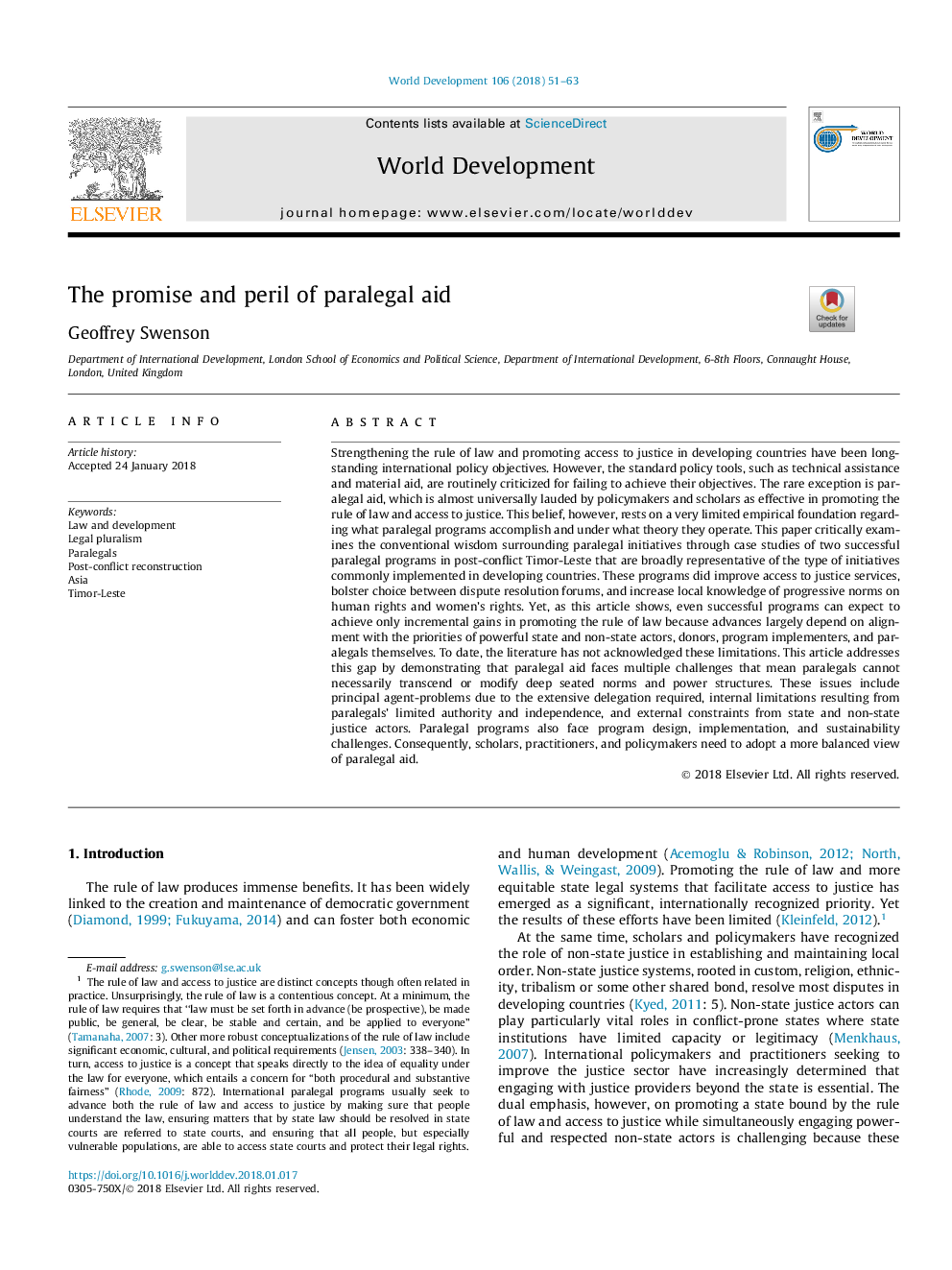ترجمه فارسی عنوان مقاله
وعده و خطر کمک های پارالغ
عنوان انگلیسی
The promise and peril of paralegal aid
| کد مقاله | سال انتشار | تعداد صفحات مقاله انگلیسی |
|---|---|---|
| 103805 | 2018 | 13 صفحه PDF |
منبع

Publisher : Elsevier - Science Direct (الزویر - ساینس دایرکت)
Journal : World Development, Volume 106, June 2018, Pages 51-63

